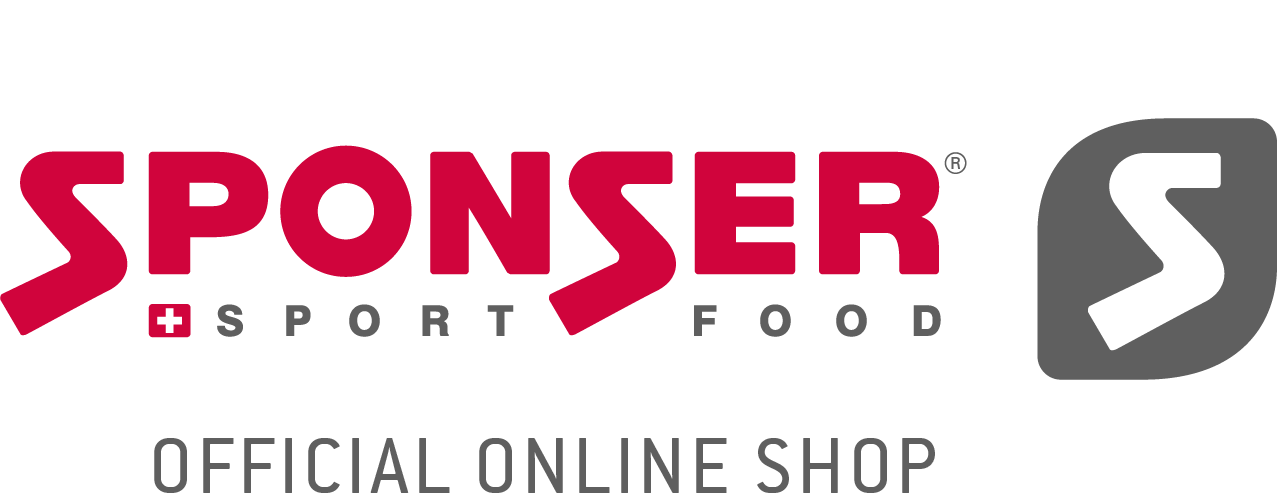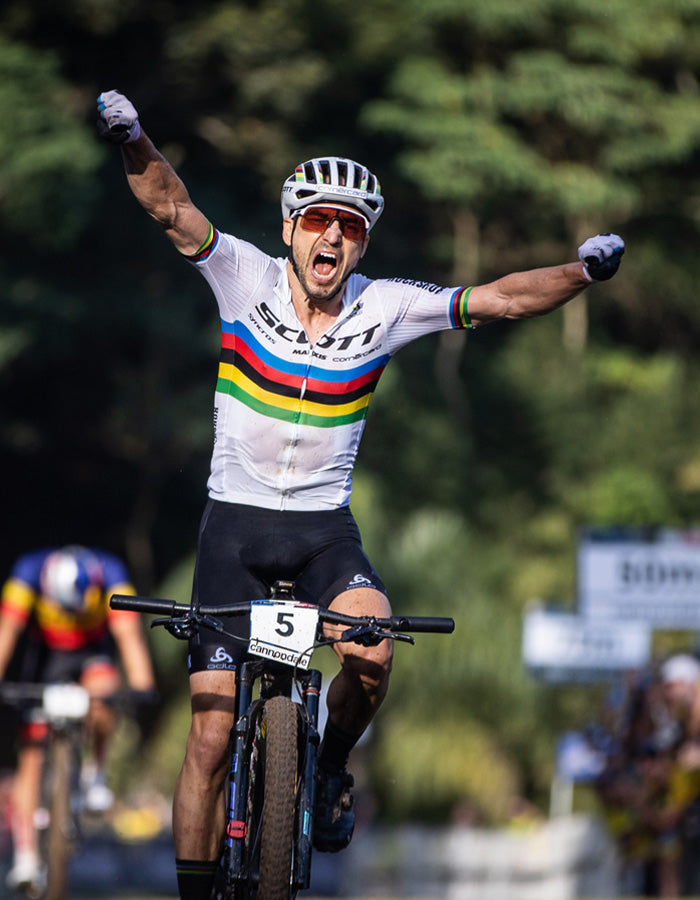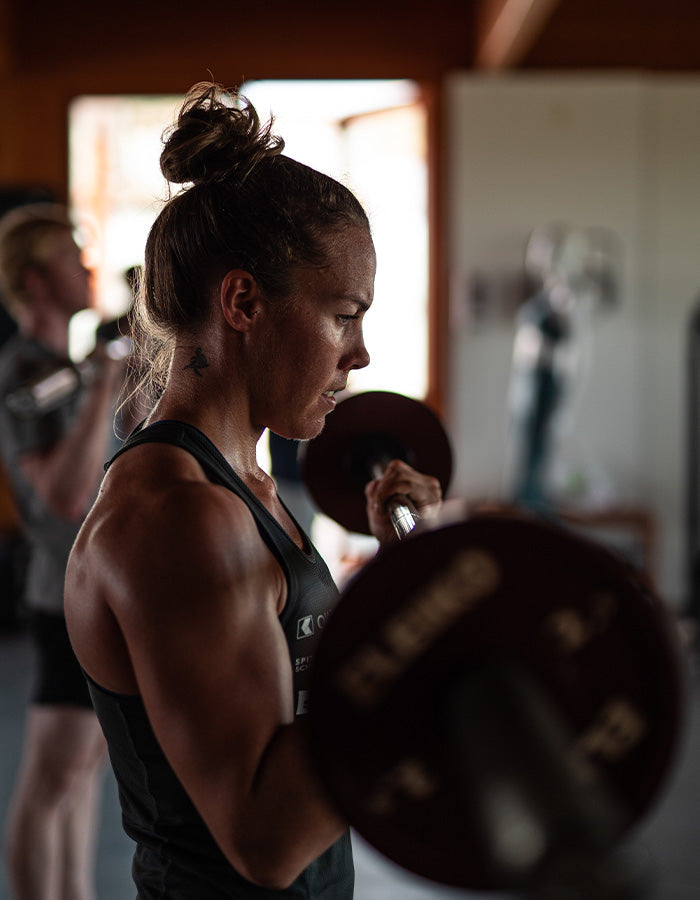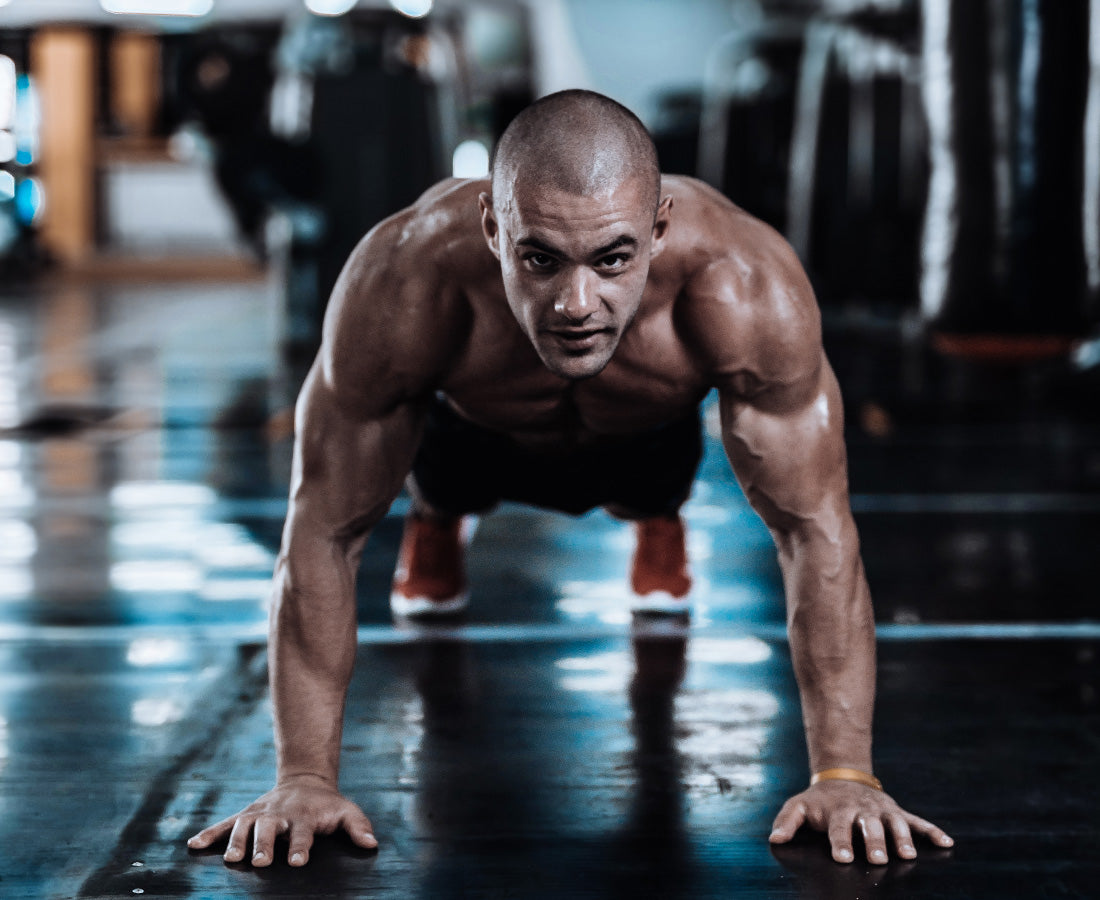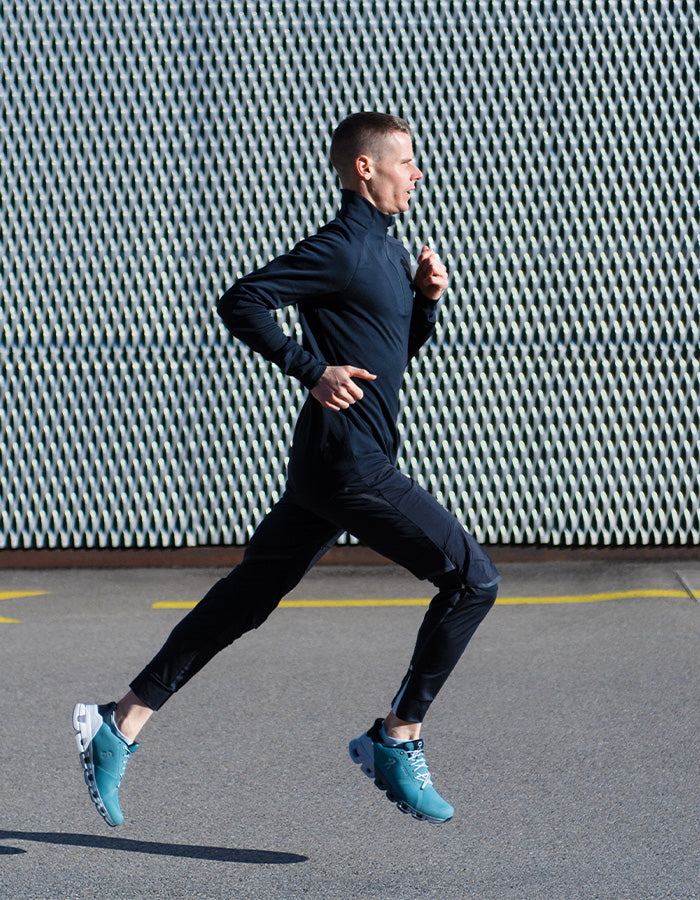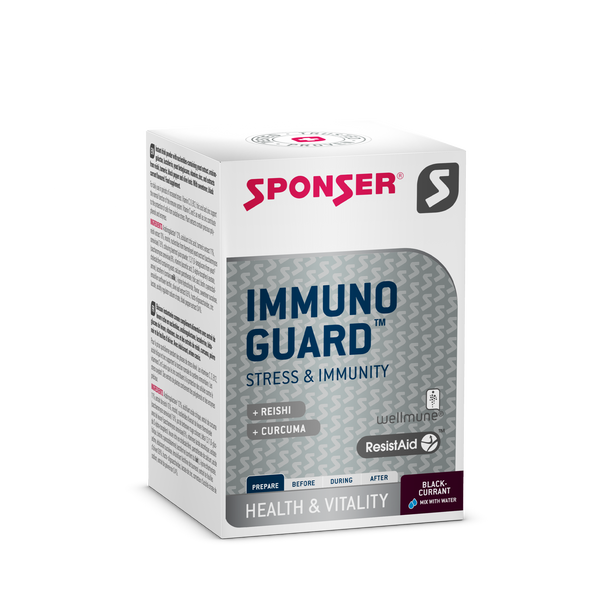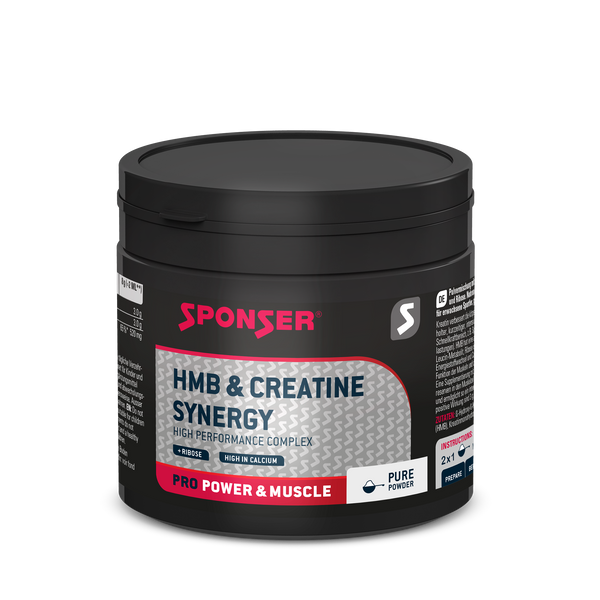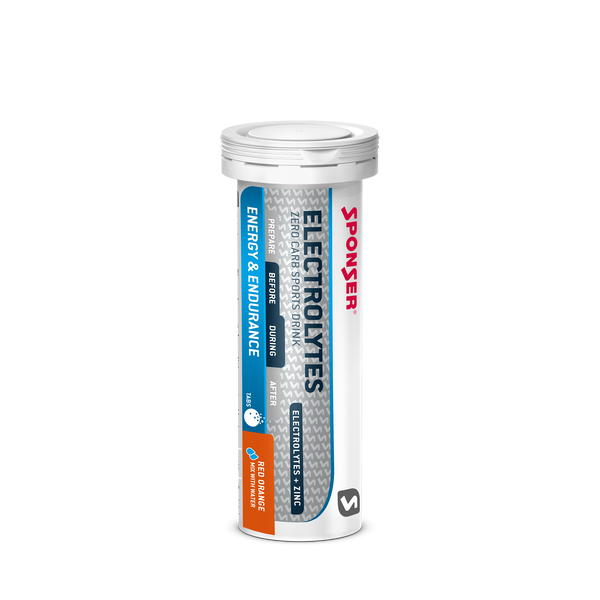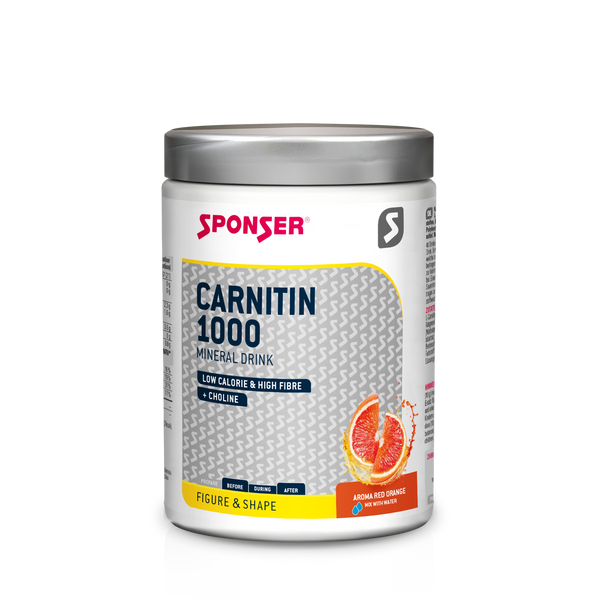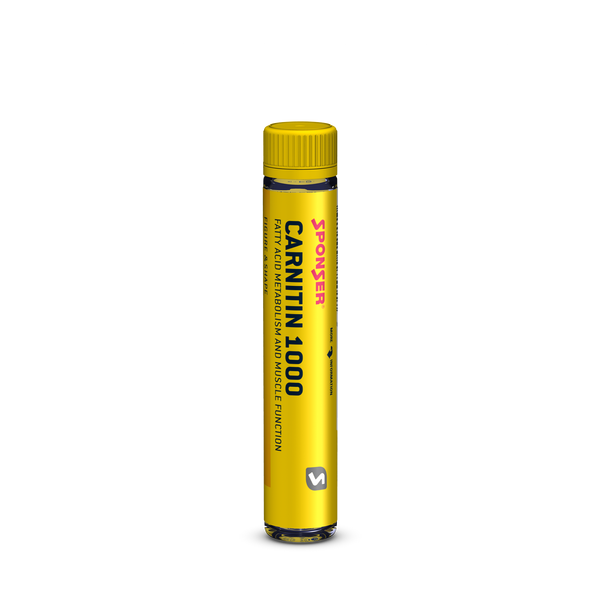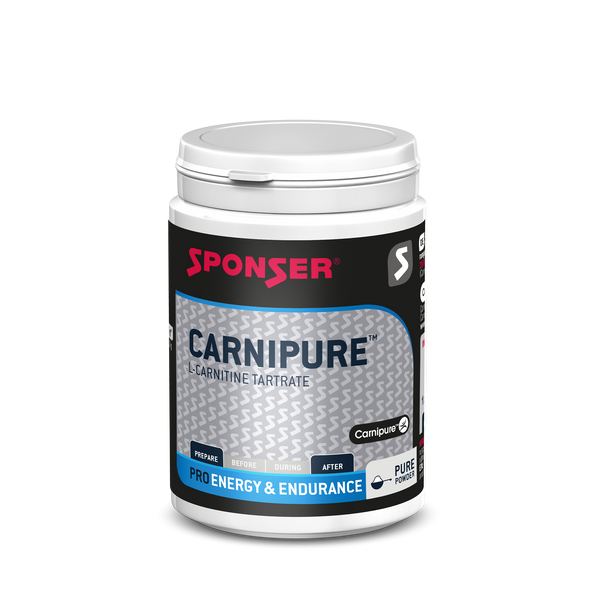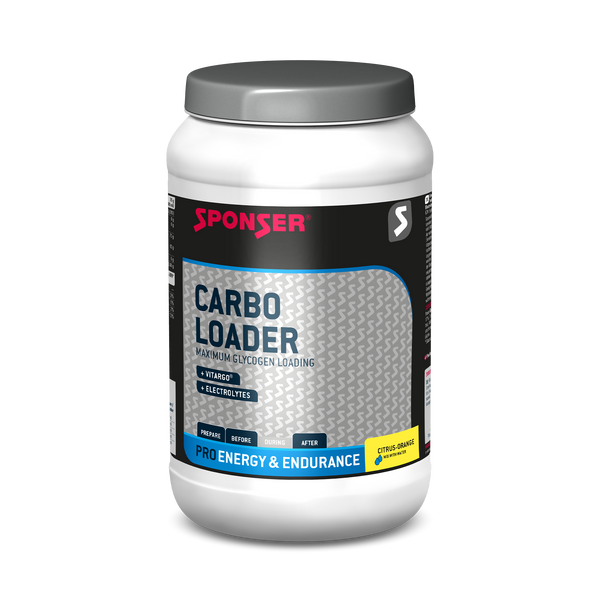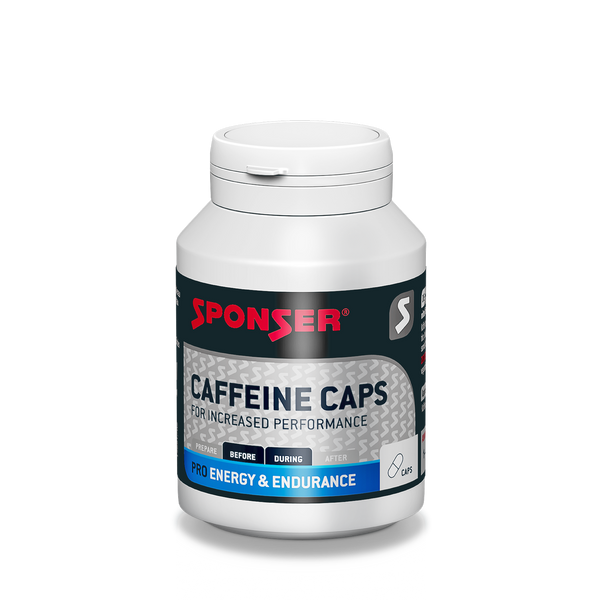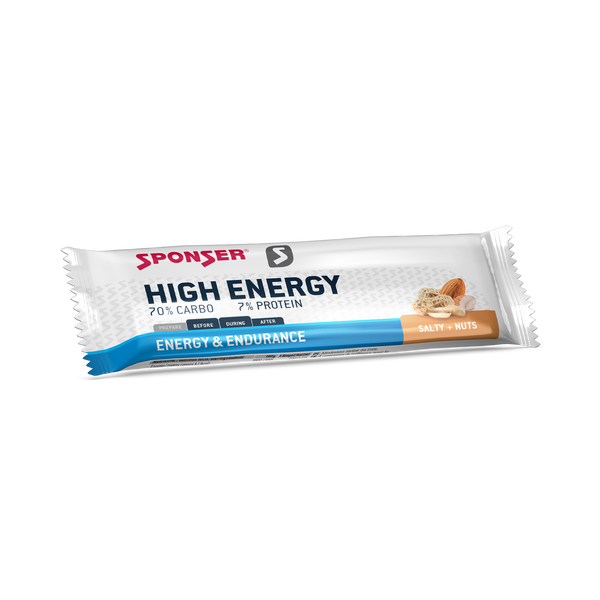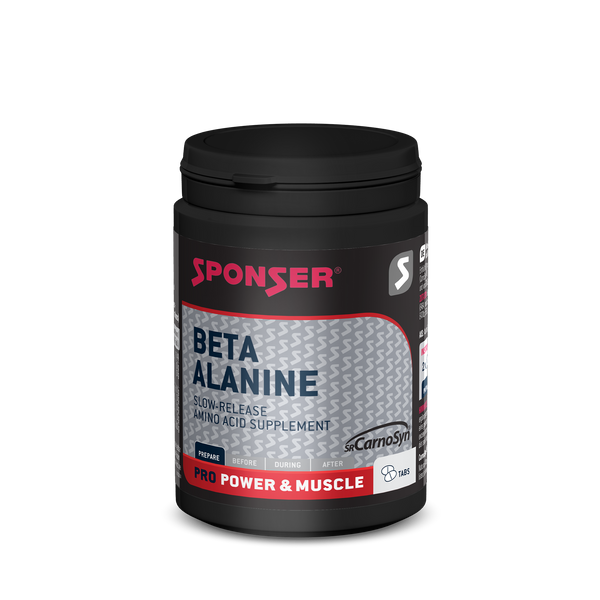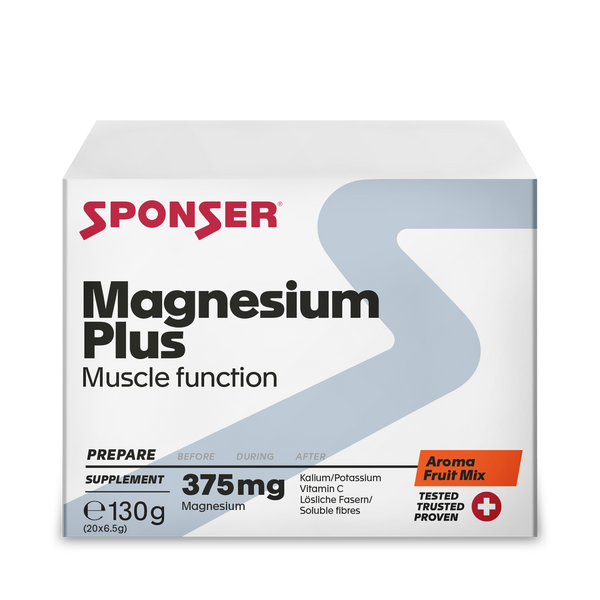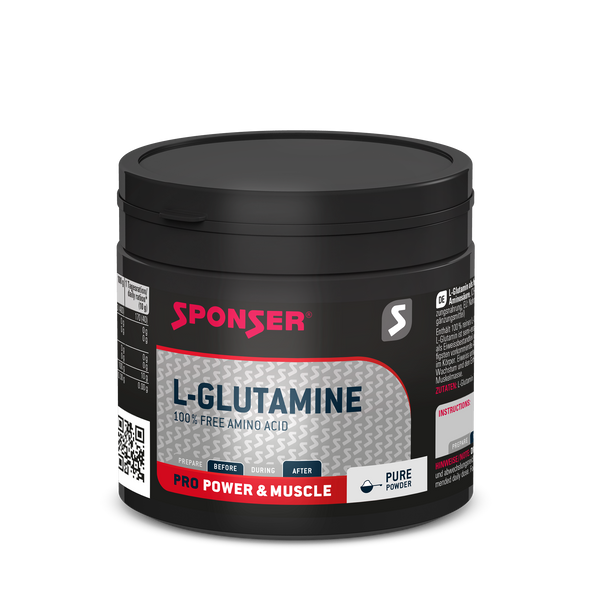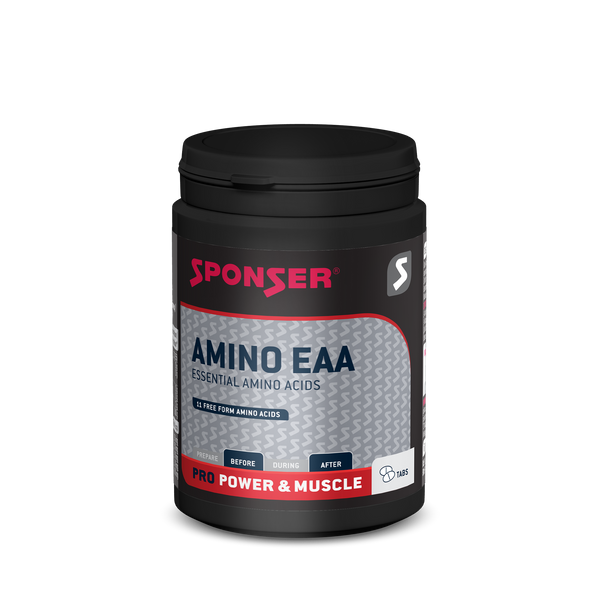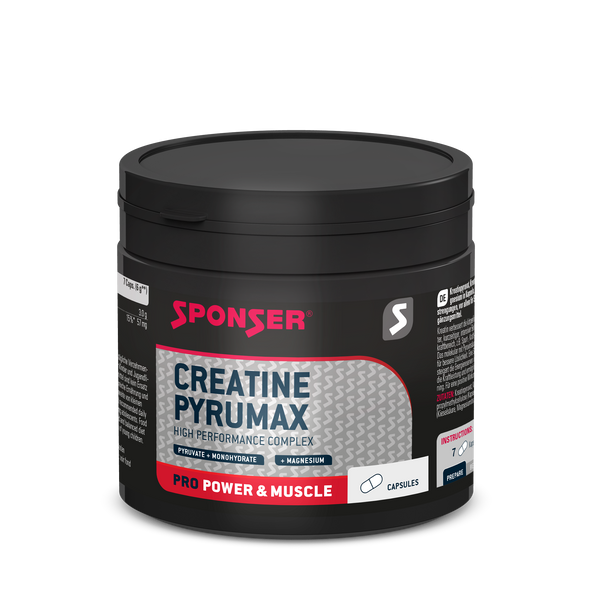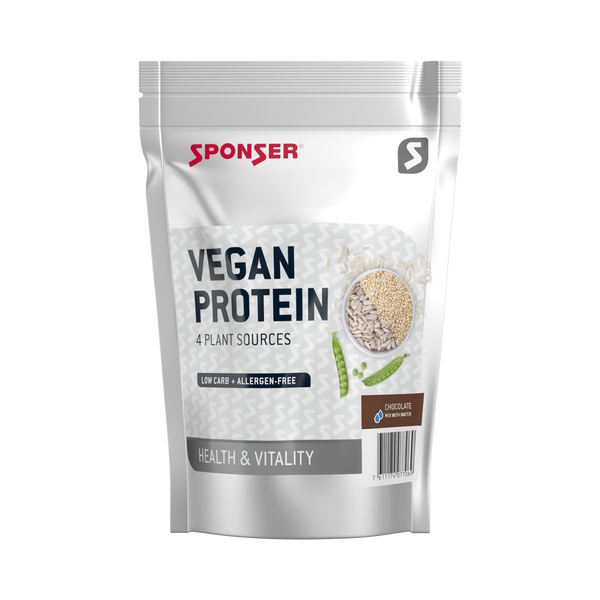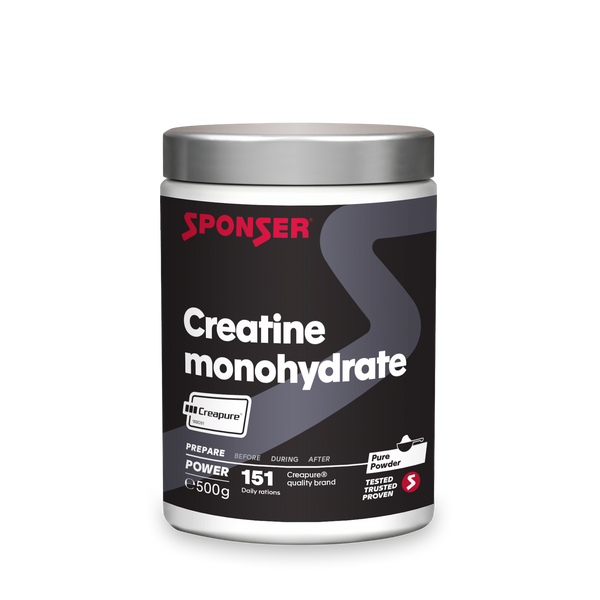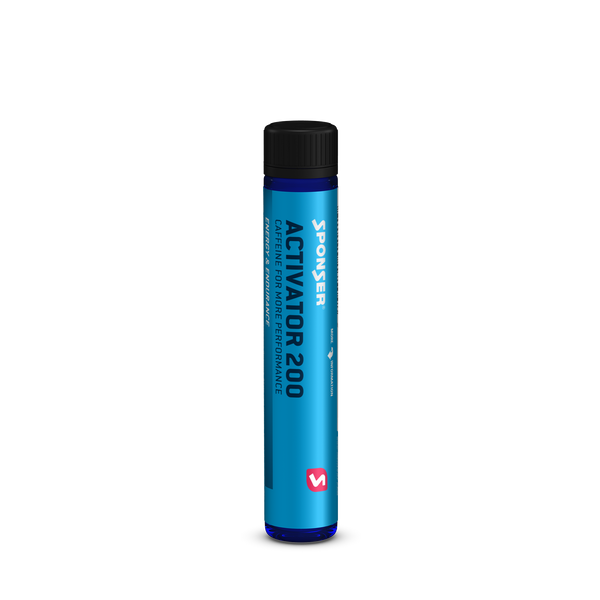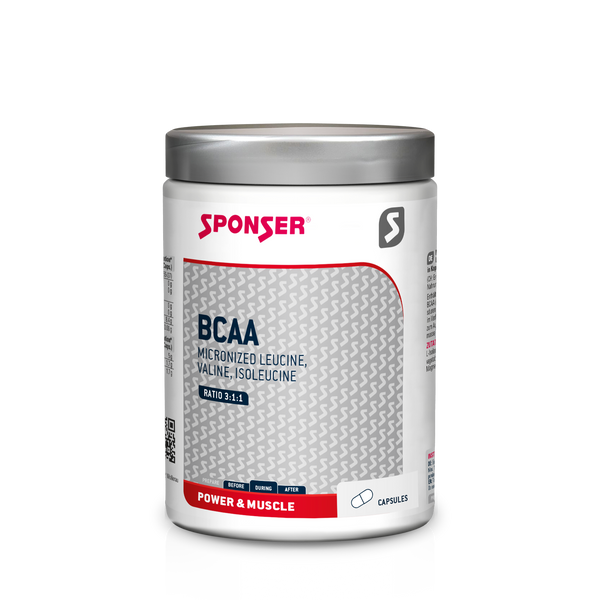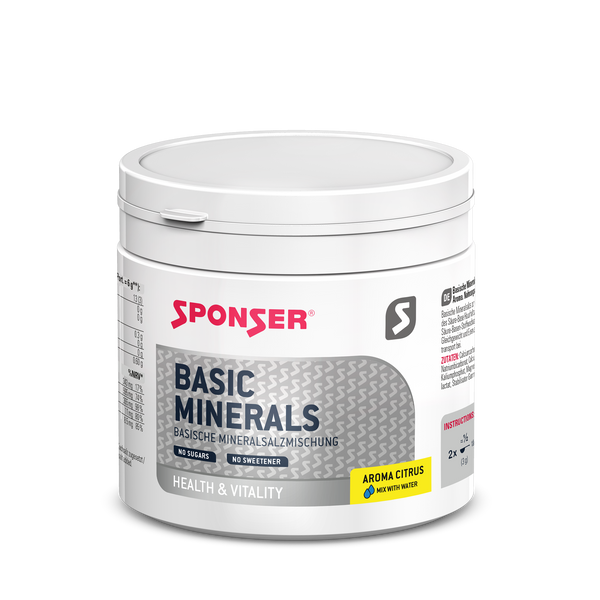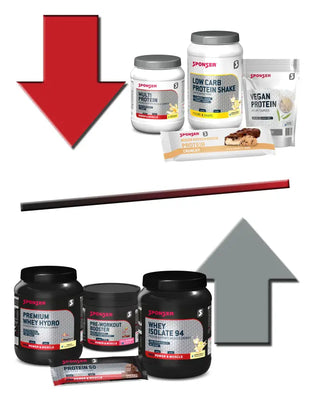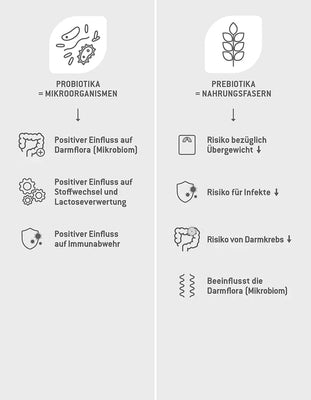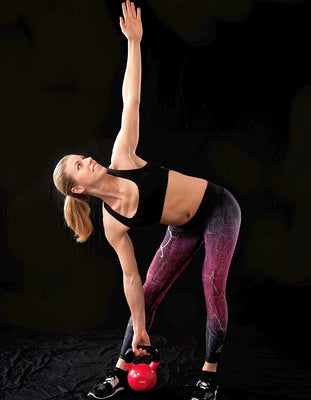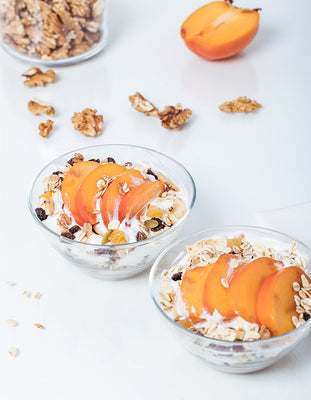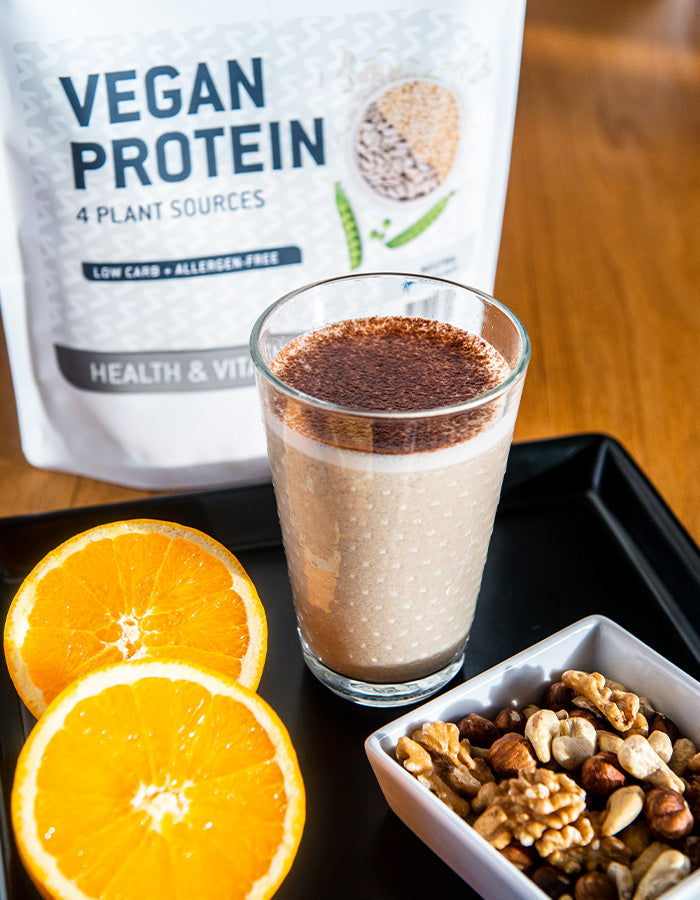
Photo credit: SPONSER SPORT FOOD AG
Vegan nutrition for athletes: feasible, but complex
With the current ecological and ethical movement, vegan nutrition is increasingly attracting attention. Especially in urban areas, vegan nutrition seems to be a trend, which is reflected in lifestyle and thus also in everyday sports activities. The movie «Game Changers» (1), which is also running on Netflix, also contributes to postulating a vegan diet. Let's therefore take a closer look at individual aspects of vegan nutrition (2):
Does a vegan diet cause a deficiency?
Not if you are sufficiently informed about nutrition and are able to implement the acquired knowledge. Studies show that vegetarians and vegans often eat more consciously than the general population. This is especially true for the consumption of vegetables, fruit and wholemeal products (3). Nevertheless, some studies show that the need for certain nutrients cannot be adequately met by a purely vegan diet. The most critical nutrients are iron, zinc, omega-3 fatty acids, vitamin B12, calcium and vitamin B2, which are very often insufficiently taken. The supply of vitamin D during the winter months is already widely insufficient with an omnivorous diet, and the more critical for vegans (4).
Tip
If you are interested in a vegan diet, it is a good idea to counter potential deficiencies with an appropriate dietary supplement (vitamin and mineral supplements).
Does plant protein stimulate protein synthesis as good as whey protein?
To be fair, the answer would be «yes and no». Both animal and plant protein sources are actually very well researched. Of the vegetable protein sources, soya is probably the best-researched and biologically most valuable one due to its high protein content and relatively complete amino acid profile. However, studies have shown that intakes of 17.5 g and 40 g of soy protein do not increase muscle protein synthesis rate to the same extent as the intake of comparable amounts of whey protein, milk protein or beef protein (5, 6, 7). The reason seems to be the essential amino acid L-leucine. If one pays attention to a sufficient L-leucine content in a vegetable protein source, the results seem to be comparable (8), whereby, depending on the vegetable protein source, various anti-nutritive factors can in turn negatively influence the biological value (amino acid complexes, enzyme inhibitors). In his work (8) Van Vliet recommends the following measures:
• Enrichment of plant protein sources with the amino acids methionine, lysine and/or leucine.
• Selective breeding of plant sources to improve the amino profiles.
• Consumption of larger amounts of plant sources compared to animal protein.
• Inclusion of multiple protein sources to provide a more balanced amino acid profile.
Tip
• With
AMINO EAA tablets SPONSER provides a vegan amino acid supplement which contains only the essential and conditionally essential amino acids. Thus, vegan protein sources can be systematically and specifically upgraded to stimulate muscle protein synthesis.
• Vegan protein sources should be consumed in slightly higher doses (30-40 g). The only problem could be that vegetable protein sources often have an increased fibre content. As long as no digestive problems occur, there is nothing to be said against larger portion sizes.
•
VEGAN PROTEIN is deliberately based on different vegetable protein sources, as the molecular physiologist Van Vliet recommends in his article. In this way any amino acid deficiencies are selectively balanced. It is also formulated with allergen-free ingredients.
Is a vegan diet also feasible for athletes?
If the protein amounts are sufficient and the amino spectrum is taken into account, an adequate vegan nutrition is possible. Nevertheless, whoever wants to eat vegan should not spare any effort, especially when it comes to practical aspects. Convenience plays an important role in the everyday life of an athlete who completes several training sessions a day. The demands on digestion and absorption are particularly high. Many athletes, for example, do not want to consume a whole plate of legumes, but prefer a non-vegan, lacto-vegetarian cup of cottage cheese or curd instead. The feeling of well-being is correspondingly dependent on the volume of food and the proportion of soluble and insoluble plant components.
Tip
VEGAN PROTEIN and
AMINO EAA are vegan protein supplements from SPONSER® offering high convenience, which - cleverly and specifically used - qualitatively improve the nutrient supply.
Conclusion: A vegan diet in sports is feasible, but costly
From an ecological-ethical point of view, a vegan diet may make sense very well. However, from a nutritional point of view, vegan nutrition in sports makes little sense and is difficult to implement. Who wants to eat vegan nevertheless, profits from the above mentioned recommendations.
Vegan products from SPONSER
SPONSER has a large selection of vegan products in its range plus a very attractive
VEGAN SPORTS NUTRITION bundle. The following products contain no animal components and are naturally vegan:
ACTIVATOR
AMINO EAA
BASIC MINERALS
BCAA CAPSULES
BCAA INSTANT
BETA ALANINE
BODY SHAPER
CAFFEINE CAPS
CARBO LOADER
CARNIPURE
CARNITIN 1000
CARNITIN 1000 MINERAL DRINK
COGNIVISION BOOSTER
COMPETITION
CREATINE MONOHYDRATE
CREATINE PYRUMAX
EAA INSTANT
ELECTROLYTES
GG E-BAR
HIGH ENERGY BAR Salty+Nuts
HMB & CREATINE SYNERGY
IMMUNOGUARD
ISOTONIC
LACTAT BUFFER
L-GLUTAMINE
LIPOX BURNER
LIQUID ENERGY BCAA
LIQUID ENERGY PLUS
LIQUID ENERGY PURE
LIQUID ENERGY SALTY
LOW CARB BURNER
MAGNESIUM 375
MAGNESIUM PLUS
MALTODEXTRIN 100
MENTAL FOCUS
MENTAL FORCE
MUSCLE RELAX
NITROFLOW PERFORMANCE
OAT PACK Macadamia-Chufas
PURE & NATURAL BAR
RED BEET VINITROX
SALT CAPS
SPORT TEA
SWISS MÜESLI
ULTRA COMPETITION
VEGAN PROTEIN
VEGAN PROTEIN BAR
VEGAN SPORTS NUTRITION Bundle
WAXY MAIZE STARCH
Related articles
on
» protein
on
» health
bundle »
VEGAN SPORTS NUTRITION
Literature
1)
Cameron J et al. (2018): The Game Changers. Movie 2018.
2)
Root M (2019): The Game Changers – a scientific review with full citations. Tactic Functional Nutrition. 24 October 2019.
3)
Leitzmann/Keller (2013): Vegetarische Ernährung, 3. Aufl., Verlag Eugen Ulmer Stuttgart 2013.
4)
Appleby PN et al. (1999): The Oxford Vegetarian Study: an overview. Am J Clin Nutr 1999;70(3 Suppl):52S S-531 S.
5)
Tang JE et al. (2009): Ingestion of whey hydrolysate, casein, or soy protein isolate: effects onmixed muscle protein synthesis at rest and following resistance exercise in young men. J Appl Physiol (1985) 2009;107(3):987-92.
6)
Yang Y et al. (2012): Myofibrillar protein synthesis follwing ingestion of soy protein isolate at rest and after resistance exercise in elderly men. Nutr Metab (Lond). 2012 Jun 14;9(1):57.
7)
Wilkinson SB et al. (2007): Consumption of fluid skim milk promotes greater muscle protein accretion after resistance exercise than does consumption of an isonitrogenous and isoenergetic soy-protein beverage. Am J Clin Nutr. 2007 Apr;85(4):1031-40.
8)
van Vliet S et al. (2015): The Skeletal Muscle Anabolic Response to Plant – versus Animal-Based Protein Consumption. J Nutr. 2015 Sep;145(9):1981-91.
Author: Yvonne Forster
dipl. eng. food sciences UAS
dipl. dietitian HS
